1. May we start with the title of the book? (Your notes to the text tell us that it’s a translation of a phrase from a poem by Schiller, later set to music by Schubert and then taken as the title of the 2018 Liverpool Biennial, which is where it caught your eye.) I wonder what connotations it has for you, and what feelings and thoughts you think it might prompt in readers?
I first came across the phrase when I was listening to a BBC radio broadcast about the Liverpool Biennial. That broadcast, an episode of the Saturday Review, used an audio clip of Ian Bostridge and Julius Drake performing Schubert’s D677, which I thought was surpassingly beautiful. And the phrase stayed in my mind. That was during the summer of 2018, when I started work on the project that would later develop into this novel. In the autumn I did actually get to visit the Biennial, and it was around that time that I decided to use the same title for my book.
Obviously the phrase connotes a certain disillusionment with contemporary life. And taken out of context, this disillusionment might be straightforwardly nostalgic – the ‘beautiful world’ might be imaginatively located in some specific historic moment – or it might be vaguer and more diffuse. For a while I became kind of fascinated with the recurrence of this motif throughout the history of literature – the ‘ubi sunt’ tradition in Latin poetry, the prominence of ruins and decay in Anglo-Saxon literature, and then eighteenth-century poets like Schiller comparing the relative aesthetic poverty of the modern era to the imagined splendour of ancient life. I think this sense of a beautiful world passing away can feel quite contemporary, because of our political moment and because of the climate crisis. But in fact our cultural terminology for this experience long pre-exists our present circumstances, and I find that interesting.

2. Beautiful World, Where Are You revolves around four characters, who between them give us depictions of established and brand-new relationships, friendship both same- and opposite-sex, romantic love and a less definable sort of Platonic love. There’s something so playful about the way you present all the different permutations of attachment and affection between the characters. Can you tell us a little about how you approached that?
It took me a long time to work out how to tell the story of this novel. It was difficult for me to answer any of the basic questions that a novelist has to answer: whose story is this, when does it begin, when does it end, who tells it, and so on. None of the narrative techniques I had used in my previous two books – first-person past-tense narration in the first novel, and close third-person present-tense in the second – seemed to be of any use to me this time around. I had to work out a new kind of narrative voice (or at least new to me) in order to make sense of the story I wanted to tell. At the same time, it’s a very simple story. It’s about four characters and the relationships between them. I just had to put some effort into finding the right shape, structure and voice to convey the novel that I knew I wanted to write.
3. One of the four – and perhaps the one who we might think of as the novel’s lead character – is a novelist, Alice. Novels with novelists in them are often tricky terrain. What drew you to it?
Firstly, it’s probably worth saying that I don’t think the novel has a lead character! The majority of the book is very rigidly structured in ‘rounds’ of four chapters each, shared equally between the four narrative strands of the novel. My last book had a similarly fixed structure, alternating between the two perspectives of the two lead characters – but some readers still came away with a sense that one or other of them was the ‘real’ lead character. I think to some extent it’s a subjective judgement.
To answer the question, though: all novels have novelists in them. The novelist may be hiding in the guise of the narrator, or hiding even further behind the narrator as a structuring authorial consciousness. But they can never be entirely absent, whether they are hidden or not. In some ways, writing books is just a job, and I don’t think most readers care very much what the principal characters of a novel do for a living, as long as the novel is interesting. I don’t know if there really are readers who object to reading about novelists on principle, but if so, the novel may not be the genre for them.
As to what drew me to writing about a novelist: my previous books were set partly in schools and universities, and it so happens that when I wrote them, I had not spent much time outside school or university settings yet. Since then, I’ve spent most of my time writing and editing. And now it happens that one of the protagonists of this book is a writer and another is an editor. So I think it is fair to say that I write what I know. The events of this novel, like those of my previous two, are entirely fictional, but the world of the book is based on the real world that I have actually lived in. My experience of the world is of course very limited, and I only write about a small limited number of things in my fiction also. But I don’t mind that – there are lots of other writers writing about lots of other things.
5. Alice and Eileen frequently have long discussions about politics and society via email; they’re reminiscent of the exchanges between Frances and Bobbi in Conversations with Friends. It can be hard to present ideas and debate in fiction – how does it work for you?
I think the intellectual lives of the central characters are more significant in this book than in my previous work. Partly that might be because the characters are older, and have had time to read more and to develop their ideas at greater length. And partly it’s because the two central female characters both work in intellectual fields – one as a writer and the other as an editor. But I also think this novel is more deeply concerned with the nature of intellectual friendship. I was particularly interested in the interaction between Eileen and Alice’s relationship and their ideas – how their thoughts and opinions affected the friendship, and how the specificities of the friendship informed the development of their ideas. So there’s a kind of back-and-forth in this book, a movement between thought and feeling and back again – and I see that movement as part of the novel’s plot (such as it is).
6. Alice has been through a mental health crisis, and subsequently moved away from Dublin to a much more solitary life on the coast. It’s something she, and other characters, seem to feel ambivalent about: is it a retreat from life, or a step towards something new? What did you want to suggest?

Alice’s decision to leave Dublin is in some ways the triggering event of the novel. We know from early on in the book that Eileen and Alice lived together for several years in their twenties, and afterwards continued to live in the same city, maybe taking their proximity to one another for granted. The novel begins after Alice has moved to a coastal village in County Mayo, while Eileen is living and working in Dublin as before. They are separated by a car journey of a few hours, but neither can drive, and public transport links are poor. So they are faced with the question of how and when they’re going to see one another again. The journey itself is a minor inconvenience, but it starts to take on disproportionate significance as the novel progresses.
As to whether Alice has made the ‘right’ decision by moving to a small village away from all her friends and family – I don’t think I was interested in making a value judgement of that kind. Clearly she’s quite isolated in her new environment. But maybe relative isolation is what she needs. I was more interested in observing her attempt to make a new life for herself than in coming to a decision about whether it was a good life or not. It’s the life she has, which is the only important thing as far as the novel is concerned.
7. As in Normal People, that difference between Dublin and the rest of Ireland, and the perceptions that Dubliners have of “culchies” and vice versa, is an important part of the novel’s backdrop. How important is it to the fabric of your writing?
In this novel, I think there is an important difference between the city and the countryside. But the difference is mostly literal rather than imaginary – two characters are living in a small village and two others are living very different lives in a capital city. The literal distance that separates them, and the inevitable differences in their lifestyles, are an important part of the book. But perceptions of cultural disparity don’t really come into play so much. Three of the four protagonists are (like me) from the west of Ireland; the only Dubliner is now living in Mayo anyway. Dublin is a relatively cosmopolitan city and many people who live there were not born there, obviously. I suppose this book is more about choosing (or being made to choose) where to make a life, and what kind of life to make.
8. Alice begins an ambiguous sort of relationship with Felix, whom she meets online; they appear to become closely bonded but also to antagonise one another. Woven into their story is one of class dynamics, and financial and educational differences – something that, again, you made part of Normal People. What did you want to explore?
Alice’s relationship with Felix – who did not attend university and works in a local shipping warehouse – is certainly structured in part by financial inequality. But on reflection, I think class dynamics are present in all the central relationships in the novel. Simon and Eileen first get to know one another as children, and the relationship between their two families is in some ways a story of class disparity. And while Eileen and Alice may have met on relatively equal terms as young students, Alice’s success has now left her in a position of enormous financial privilege, while Eileen struggles to pay rent. What’s interesting to me is the pressure that these inequalities exert on the lives and relationships of the characters. I’m not really trying to offer any specific commentary on the injustice of class inequality, though I do personally believe it’s deeply unjust. Readers can draw their own conclusions about that. What interests me is that my characters have to live with these inequalities regardless of what they think about them intellectually. The consequences for their emotional lives, and for their sense of themselves, form part of the novel’s dramatic action in a way.
9. Both Alice and Eileen have very complicated feelings about romantic relationships, and about motherhood. Of course, these aren’t new dilemmas, but I wonder whether you think there are particular issues for your characters’ generation?
I’ve always been interested in the extent to which history and culture shape our intimate relationships. So I do think, considering the rapid pace of technological and cultural change, that some of the characters’ feelings about love and motherhood are generationally specific. Both of the women worry about parenthood in the specific context of the climate crisis, and both are confronting a sexual and romantic culture vastly different from the one faced by their parents’ generation. On the other hand, I don’t want to make their problems sound too special. Every generation experiences change and has to think their way through that change somehow. But I am interested in some of the specific challenges of our present cultural moment, and how the characters might respond to those challenges.

10. The characters also have complicated relationship with their families, who are mostly presented indirectly: Eileen’s sister getting married, Felix’s brother. Do you want to get away from the idea of the nuclear family as the engine of novels, and substitute friendship groups instead?
I think romantic relationships are the primary engine of my work, though there are usually a lot of other things going on too. And that used to be typical of the novel as a genre more broadly. Romantic and sexual relationships drive the narrative in (e.g.) Emma, Anna Karenina, The Wings of the Dove, In Search of Lost Time – sustaining and enriching the further depths and complexities of those books. I think that’s basically what I strive for in my work. Later in the twentieth century, the development of the novel maybe led away from romantic life and toward family life, producing some very beautiful and meaningful books. But while the family novel is an important departure from the marriage novel, neither is any ‘better’ than the other. And I think interesting things can still be accomplished from the romantic point of view. Whether I’ve actually managed to accomplish them isn’t for me to judge.
12. Eileen and Simon are separated from Alice by distance for much of the novel – and when they’re reunited, there’s a great deal of built-up emotion. That seemed especially pertinent now, when we’ve all been separated from loved ones. Did that feed into the writing process?
Yes, I think so. The final section of the book is also the last section I wrote, and it was written during a period of almost total lockdown, when I hadn’t seen friends or family members for a long time. I think that’s partly why my experience of writing those chapters, in which all four characters are staying together in one place, was so intense. The ordinary experiences of sharing a house with friends – eating meals together, waiting to use the shower, staying up late talking – seemed much more than usually fraught with significance and feeling. I just really missed my friends. I had always planned to unite all four characters towards the end of the book, but the circumstances under which I was writing definitely had a part to play in how the final section developed.
13. As with all of your writing, there’s a sense of characters grappling with huge emotions, trying to make sense of them, and of themselves. At the same time, there’s a comic dimension, as if you’re inviting us to contemplate how ridiculous we can all be at times. Is that a fair reading? Do you see yourself as a comic writer?
I find life very funny. So I think it wouldn’t be honest for me to try and write about life, even in fiction, without trying to accommodate how funny it is. And of course, my characters are often trying to make one another laugh, with varying degrees of success. I have to admit they made me laugh quite a bit when I was writing about them. For me it’s difficult to imagine friendship or love without a shared sense of humour, which has to include the ability to laugh at oneself. But I try to avoid satirising the characters. I don’t think they are any more ridiculous than I am – which is to say, I’m sure they are really ridiculous at times, and so am I.
14. Do you see a relationship between your books in terms of theme, or style? Is there a Rooney-world that they all inhabit, or do they feel more separate than that?
I do think the books are linked together through the unfortunate fact that I wrote them. I never consciously tried to develop a ‘style’, but I have a lot of limitations as a writer. And those limitations may as well be described as ‘style’ – it’s probably the kindest term available. Certainly the books are thematically similar. As I mentioned above, I do primarily write about romantic relationships, and about friendship. Those seem to me like themes large enough to be explored for a lifetime, but I’m sure other people feel differently. It certainly wouldn’t be unfair to point out that my books are all pretty similar to one another. I agree there are resemblances, but maybe I’m more comfortable with that than other people would be, because it’s also true of some of my favourite novelists. Many of Henry James’s novels, for example, are very similar to one another, and the ‘stakes’ of the plot are almost always marital or sexual in nature. But James is nonetheless, in my view, one of the greatest novelists in the English language – not because his novels are all really different, but partly because they’re not.

17. Do you tend to stop reading other fiction when you’re writing it yourself? Do you feel this novel has a kinship with any other novels, present or past?
I tend to read very little contemporary fiction when I’m writing. And in general I probably read less contemporary fiction than other writers do. This is partly because there are still so many great classic novels I haven’t read yet, especially those written in languages other than English. And reading novels that contributed substantially to the development of the novel as a form is an education for me. Reading new books is different, though obviously still pleasurable and worthwhile. I just find it’s not really what I want to be doing when I’m writing something new myself.
I do feel that this novel has a kinship with others. But I have to tread a little bit carefully here, because I don’t want to seem to be comparing myself to some of the greatest novelists who have ever lived. I am influenced by my favourite books, but that says nothing about what I manage to do with that influence. Anyway: when I was about halfway through writing Beautiful World, I read Natalia Ginzburg’s novel Happiness, as Such, and it was so good that I almost wanted to give up writing altogether. I think it’s a truly perfect book. I also read and loved Dostoevsky’s The Karamazov Brothers while I was writing this novel. And of course Henry James is in there, and I read The Golden Bowl for the first time during the writing process – another novel about two inter-connected couples and their entanglement in one another’s lives. I actually took the name ‘Felix’ from James’s novella The Europeans, although his Felix couldn’t be more different from mine. I wonder if at some subconscious level I was also remembering another literary Felix I’ve loved – a character from Zadie Smith’s NW, which has been one of my very favourite contemporary novels since I first read it. Maybe to describe these influences as ‘kinship’ is going too far. But it’s fair to say I could not have written this book without the guiding examples of other novels I admire.
18. On that note, there’s a wonderful epigraph to the novel from Natalia Ginzburg. Could you tell us what it means for you?
Natalia Ginzburg’s essay ‘My Vocation’ is the best piece of writing I have ever read about the work of writing. I return to it very often. What Ginzburg manages to do in the essay is to write with utter seriousness about the life of the writer, without for one moment making any grandiose claims about what such a life implies or accomplishes. Writing has of course been the vocation of the great novelists and poets remembered by history, but it has also been the vocation of countless millions of forgotten people who worked away quietly in obscurity. And it’s not for a writer to decide, or even to care, which category they will belong to. They just have to do the best work they can, with their own ideas, big or small. That’s important to me, and important enough to the book that I wanted to include it as an epigraph.
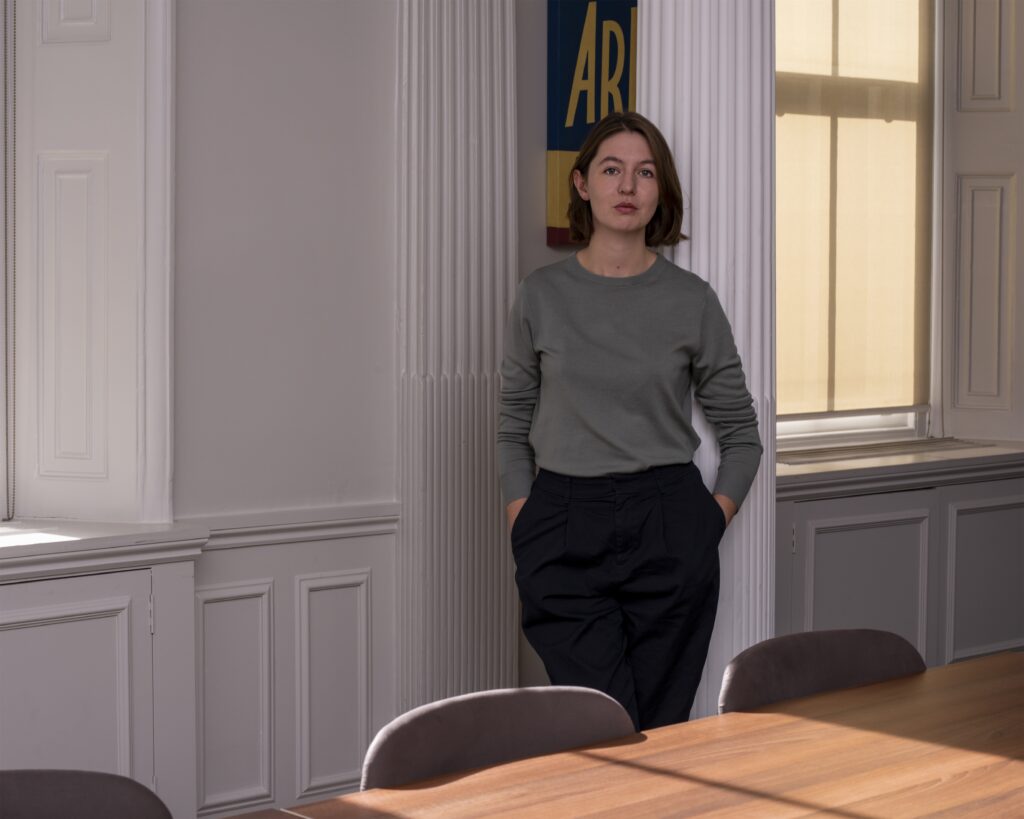
Sally Rooney is the author of the novels Conversations with Friends and Normal People. She was the winner of the Sunday Times/Peters Fraser + Dunlop Young Writer of the Year Award in 2017. In 2018, Conversations with Friends was shortlisted for both the Dylan Thomas Prize and the Rathbones Folio Prize and Normal People was the Waterstones Book of the Year, won the Costa Novel Award and was longlisted for the Booker Prize. Rooney won the Encore Award for Normal People in 2019. She was the editor of the Stinging Fly in 2018 and a Cullman Center Fellow at the New York Public Library from 2019-20.

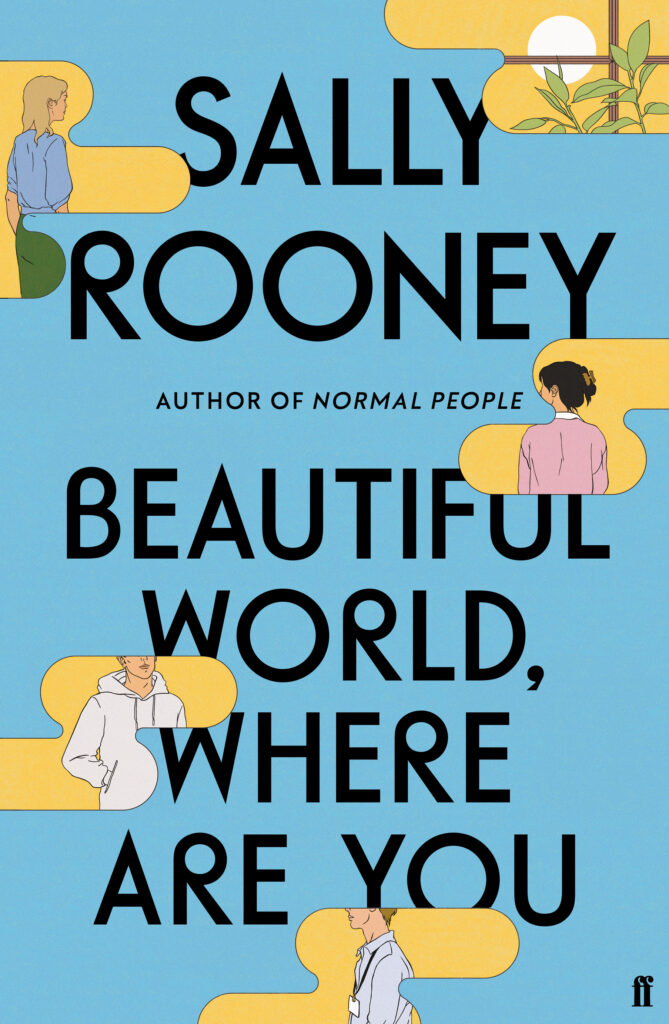


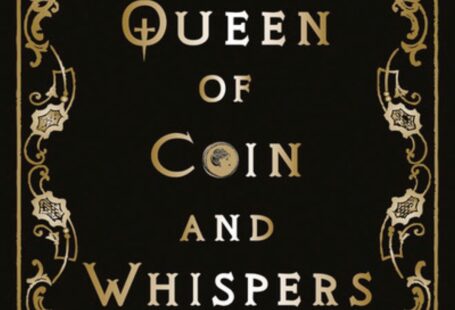
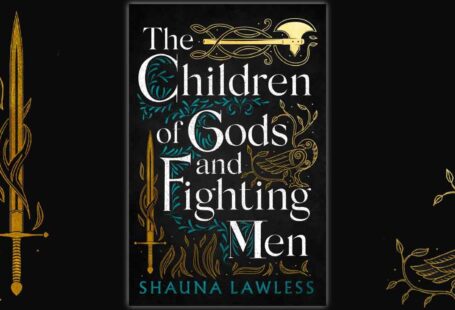
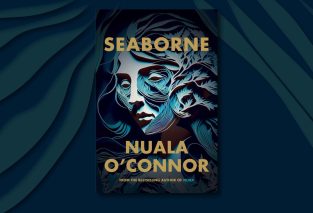
Recent Comments